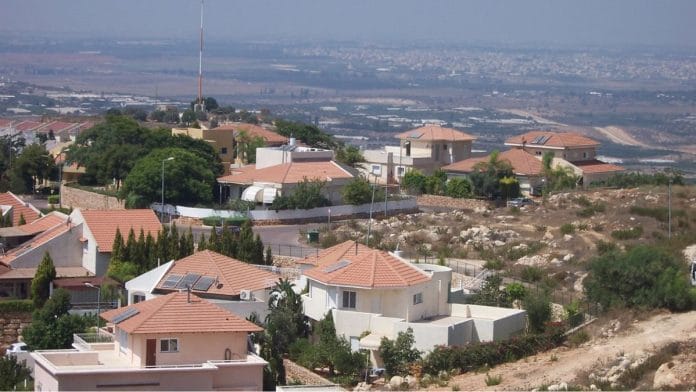New Delhi: The people of Israel are divided on the impact of constructing Jewish settlements across the West Bank on its national security. About 35 percent of Israeli adults believe such settlements will hurt the nation’s security, while 40 percent believe it will help, a new report by the Pew Research Center published Thursday has found.
According to the survey of 1,001 Israeli adults conducted between 3 March and 4 April 2024, about 21 percent of Israelis believe that such settlements make no difference to the country’s security.
The Pew survey did not include adults from non-sanctioned outposts, East Jerusalem, Gaza and the West Bank.
The West Bank is a landlocked region, and a part of the Palestinian territories, which also includes the Gaza strip. Jordan and the Dead Sea borders it in the east, while in the north, west and south, it is bordered by Israel. Ramallah, the de facto administrative capital of the Palestinian territories, is located in the West Bank.
According to various international institutions, the West Bank and Gaza are considered to be occupied by Tel Aviv.
The survey was conducted about 5 months after Hamas’ attacks on Israel, which occurred on 7 October, 2023. The attack by the militant outfit in control of the Gaza strip since 2007 has so far claimed about 1,200 Israeli lives and seen another 250 captured. Tel Aviv’s retaliation has led to the displacement of over 1.9 million Palestinians, with over 36,000 killed so far.
For years, Israel has planned and built Jewish settlements across the West Bank, with the latest round of 3,300 new homes announced in February this year. The proposed plan was swiftly deemed as illegitimate by the US.
Among Jewish Israelis, about 49 percent believe that such settlements aid the nation’s security, while only about 26 percent believe they don’t. About 21 percent believe it makes no difference.
Only 8 percent of Israeli Arabs believe that the settlements aid Tel Aviv’s security, while over two-thirds (67 percent) believe that they hurt it.
Similarly, about 68 percent of respondents on the ideological Right believe that these settlements help national security, while 72 percent on the Left believe otherwise. About half (49 percent) of the Israelis surveyed from the Centre believe that they hurt the country’s security.
More Israeli adults are worried about the increasing violence against Jews than the Palestinians in the West Bank and East Jerusalem.
About 65 percent of Israeli adults are extremely or very worried about the increasing violence against Jews in the West Bank and East Jerusalem. About 70 percent of Israeli Jews and about 43 percent of Israeli Arabs hold the same views.
Whereas, with respect to increasing violence against Palestinians in the aforementioned regions, only about 31 percent of Israeli adults are extremely worried. About 73 percent of Israeli Arabs and only 31 percent of Israeli Jews are worried to the same extent.
Views on Israeli political leaders
An earlier report by Pew highlighted the ratings on three major political leaders — Benjamin Netanyahu, Yoav Gallant and Benny Gantz. The new survey looked into public opinion of other leaders of Israel, including Itamar Ben-Gvir, Bezalel Smotrich, Yair Lapid and Mansour Abbas.
The most popular leader amongst Israelis surveyed is Defence Minister Gallant. About 61 percent of the respondents have a favourable opinion of him. The next most popular is Gantz, who was a part of the unity government set up by Prime Minister Netanyahu for the duration of the conflict against Hamas.
Gantz, however, quit the unity cabinet earlier this month. About 51 percent of the Israelis surveyed have a favourable opinion of Gantz. Netanyahu is the third-most popular leader among those surveyed, with 41 percent favourability, even as 58 percent gave him an unfavourable rating.
Opposition leader Lapid holds only a 38 percent favourable rating among Israelis, while 57 percent hold an unfavourable opinion of him. Smotrich, Minister of Finance, and Ben-Gvir, Minister of National Security, were rated unfavourably by almost two-thirds of Israeli adults.
The two leaders are considered to be far-Right in their ideological position, and are part of Netanyahu’s government. About 62 percent of the respondents hold an unfavourable view of Smotrich, while 64 percent have the same opinion of Ben-Gvir.
Both these politicians support increasing the number of Jewish settlements in the West Bank. Abbas is the leader of the conservative United Arab List party. He holds only a 20 percent favourability rating, while 76 percent of Israelis hold an unfavourable opinion of him.
(Edited by Mannat Chugh)
Also Read: In boost to cooperation, Jaishankar & Wickremesinghe commission maritime centre in Sri Lanka






